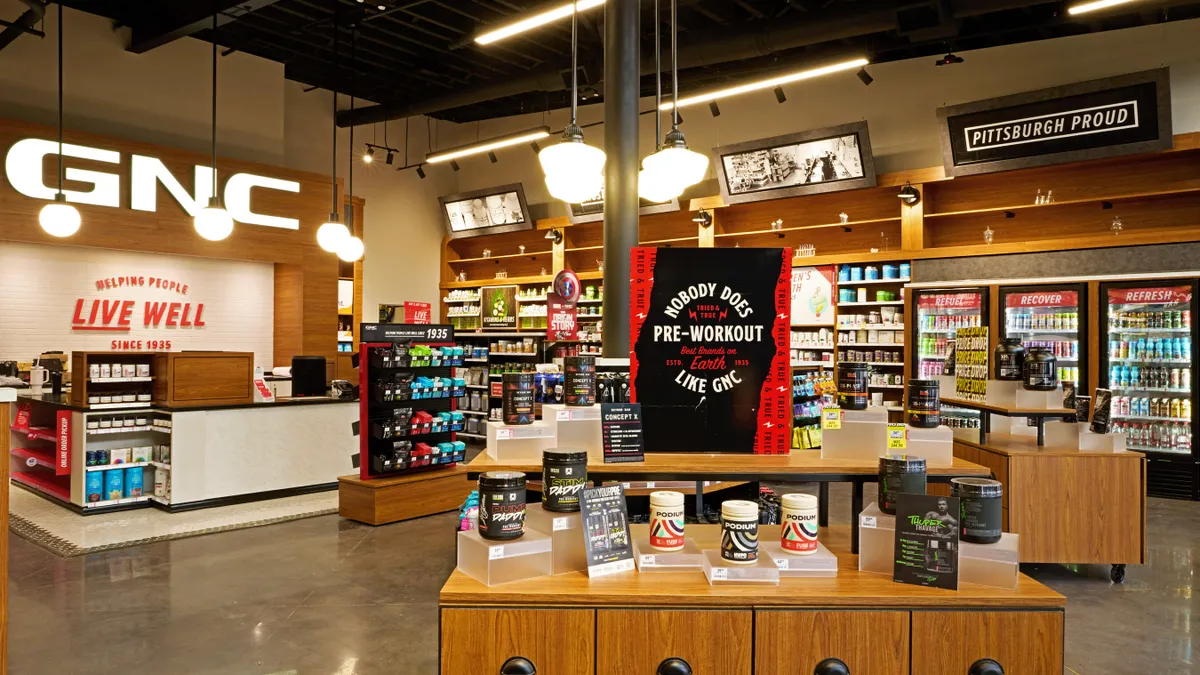Dive Brief:
- Adding another location to its more than 2,300 store count, GNC, the health and wellness retailer, unveiled its new flagship store in Pittsburgh, Pennsylvania, on Nov. 4, according to a company press release.
- The store features movable shelving, large countertops for product sampling and space to host local events and partnerships. The location will carry the retailer's performance supplements, weight loss products and other wellness items.
- To celebrate the opening of the 2,455-square-foot location, the retailer held a ribbon-cutting ceremony with Pittsburgh Mayor Ed Gainey, District 1 Councilman Bobby Wilson, and the Strip District Board of Directors. It also hosted meet-and-greets with its health and wellness coaches and a free yoga class during the opening weekend, per the announcement.
Dive Insight:
The unveiling of its new flagship store in Pittsburgh marks GNC’s 21st location in the area and reflects the brand’s “evolution into redesigned store layouts,” according to the release.
Earlier this year, GNC announced it would reimagine its stores to “deliver a modern, consumer-centric experience,” the company said in a statement.
“As part of our focus on creating a cutting-edge omnichannel experience through a customer-centric lens, we are proud to bring this seamless shopping approach to provide exceptional products and solutions that help our customers live well,” Nate Frazier, GNC’s chief operating officer, said in a statement regarding the opening of the Pittsburgh flagship.
The retailer noted in its announcement that it wants to provide additional jobs in the area but did not specify how many new hires it plans to make.
In addition to expanding offline, the retailer has recently made efforts to reach more online consumers. In late October, the retailer announced the expansion of its virtual healthcare service, GNC Health. With its three-tiered plans priced between $9.99 and $59.99 per month, subscribers can access virtual urgent care services, mental health care and virtual primary care.
The launch of its new brick-and-mortar store and suite of digital services follows its Chapter 11 bankruptcy proceedings in 2020. Rather than sell itself in a bankruptcy auction, the retailer opted to sell its business to Harbin Pharmaceutical Group, which bid $760 million for the company.















